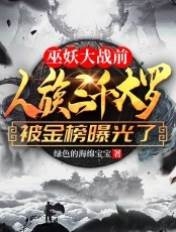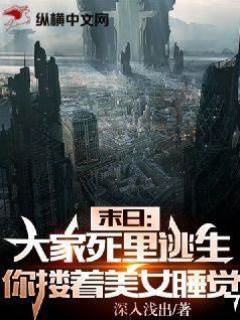Chapter 3 Quantum Mechanics is Correct
Chapter 3 Quantum Mechanics is Right
A fairy sound drifted in his ears, and another burst of red light illuminated.
In the red light ahead stood a magnificent palace. The palace was spacious, with three courtyards in front and back. The building was majestic, with flying eaves and corners, and it was magnificent.
"Huh? Where is this? Why is there an ancient palace?"
Fang Yi was very confused.
After a little thought, he slowly walked forward.
With a thought, he instantly arrived in front of the main hall of the palace.
He looked around and found that there were three rooms on the left, right and middle of the main hall. The palace was tall, with "cloud dragon" decorated on the roof, a bronze mirror in the middle, and flying tiles and eaves. The gate of the palace was engraved with the four characters "Puji Quanshan".
Fang Yi watched with interest and then walked in.
Inside the hall, there were drum stones under the vermilion pillars and intricate reliefs.
On the left and right pillars, there were two dragons flying as if alive, with their claws suspended in the air and circling.
He continued to walk slowly forward.
In the center of the hall sat a red-lacquered wooden table, intricately carved with cinnabar-colored hollows depicting a hundred birds paying homage to a phoenix
. Atop it sat a middle-aged man with a long beard, red robe, and yellow skirt, holding a whisk. He exuded a majestic and righteous demeanor. A plaque above his chair inscribed the characters "Red Pine Huang Daxian." Flanking the Daxian were the Golden Boy and Jade Girl.
Below, red-flag-carved wooden tables were arranged in a row, laden with unidentified flowers and fruits.
Upon seeing them, Fang Yi's alarm surged, and he shouted, "Who are you?" The Daxian showed no reaction.
The Golden Boy and Jade Girl were like this, both seemingly lifelike, yet as still as dead wax figures.
Huh?
Why no reaction?
Intrigued, Fang Yi cautiously approached the Golden Boy, but found he couldn't. Everything before him seemed as ethereal as the moon reflected in water—visible but untouchable.
Unconvinced, he tried to touch the Jade Girl, but the result was the same.
After two successful attempts, Fang Yi, feeling slightly bolder, reached out to touch Wong Tai Sin.
As soon as his "hand," or rather, his consciousness, touched the immortal, the palace, the attic, and everything
before him collapsed. The scenery shifted rapidly.
For some reason, everything seemed to vanish into nothingness.
Then, a singularity emerged.
Suddenly, it exploded, emitting an incredibly blinding light.
As the light faded, space and time became pitch black.
Suddenly, in the distance, a streak of light like a meteor streaked through the void.
The next moment, stars rose and gathered, forming galaxies. A
magnificent starry sky suddenly appeared!
The universe!
The very birth of the universe!
Fang Yi was stunned. He had never expected to witness the birth of the universe by touching the immortal.
Including the particles that make up matter!
Unlike the vast, connected particles he had previously seen,
this time, Fang Yi could even see the particles' colors and order.
There were three different types of particles: one resembling a galaxy's rotating particles, another point-like, and a third small round bead.
These three different types of particles were further divided into many smaller sub-categories. While their shapes were the same, their colors varied.
For example, the galaxy-like particles had twelve colors.
Some of these colors were invisible to the naked eye, visible only through the mind's transcendence of the physical body and the aid of a divine image.
The point-like particles had thirty-six colors.
The remaining small round beads had fourteen colors.
A total of sixty-two colors!
Every substance is composed of these particles, though the number and order of their arrangement vary.
Of course, these were Fang Yi's subjective observations. In reality, atoms in nature had no concrete form, and these particles were not molecules, atoms, or any of the naturally observable particles like quarks.
Fang Yi was stunned by what he saw, and couldn't help but wonder, "Is this the most fundamental substance that makes up the world?"
Even more astonishing was the feeling that he felt as if he had become one with the universe.
He could clearly sense the workings of the entire universe.
It's like a sophisticated supercomputer with a pre-programmed program. Everything within it, from the sun, moon, and stars to all living things, even a speck of dust, is pre-determined within the program.
They will follow this pre-programmed process, moving toward a certain change.
This change may be a million different, but the outcome is fixed: complete completion of the task and utter extinction.
"Is classical mechanics correct?"
a thought suddenly crossed Fang Yi's mind, filled with endless horror.
He could never imagine that classical mechanics could actually be correct!
Originally, with the rise of quantum mechanics, classical mechanics had been widely questioned, primarily because quantum mechanics, to a certain extent, overturned determinism.
Classical mechanics teaches us three things.
First, when someone observes an event, it actually occurred.
Second, choices can be made freely, or at least statistically analyzed.
Third, choices made in one place do not immediately affect events far away.
What does this mean?
Einstein's view is that if we know the current state of every particle in the universe and the physical laws governing it, we can calculate the future trajectory of those particles.
In other words, whether you are destined to fail or pass the college entrance exam isn't a multiple-choice question, but a physical calculation.
Because everything in the universe is composed of fundamental particles, including every cell in the human body, every element that makes up a cell, and the corresponding electrons in atoms, quarks, gluons, and bosons in protons, and so on. Our brain's neural networks rely on electrical signals, which are released by the interactions between particles. Therefore, the underlying logic is still the physical interactions between particles. These interactions ultimately determine whether you will perform poorly or exceptionally well.
In short, your life's final outcome is already predetermined.
No matter how the process unfolds, it cannot affect this final outcome.
It's like the moon in the sky, whether you see it or not, it exists because it is the final outcome, a fate predetermined by the universe's vast supercomputer.
People outside the universe once proposed that if classical mechanics were proven correct, human life would become meaningless.
"If that's the case, wouldn't our lives be meaningless? Because our endings are already predetermined, and no matter how hard we try, we can't change them?"
Fang Yi was distraught. He had never expected this to be the case.
But then, as a "cosmic observer," he witnessed a strange scene.
One of the "particles" had deviated from the system's originally set trajectory.
According to its trajectory, it would have completed its mission and perished in the next instant, but unexpectedly, it survived.
This state persisted for a long time.
The "supercomputer" seemed to have discovered a flaw in its system, once again enveloping the particle with countless particles and applying corrections. Eventually, the particle dissipated and annihilated.
But if that alone weren't enough to shock Fang Yi,
he observed that it wasn't just this one particle that had "jumped out of the program," but tens of millions, hundreds of millions, of others. However, the vast majority of these particles could only evade the first round of corrections, with only a handful surviving the "supercomputer's" second round of corrections.
The reason for this was that the particle, under microscopic changes, was subjected to a massive impact of uncertain energy, thus changing its original trajectory.
This cycle repeated itself, requiring an unknown number of corrections—tens of thousands, even tens of millions.
Among countless billions, even countless millions of particles, one finally escaped the system's corrections completely, radiating endless light and transforming into another singularity!
Fang Yi had clearly "witnessed" everything and had a vague idea of what was happening.
Because this "particle" was subjected to a massive energy impact each time, it was able to evade each system correction.
The probability of this happening was incredibly small, almost impossible.
The process is free, but the outcome isn't necessarily controllable!
"Classical mechanics is correct on a macroscopic scale, but quantum mechanics is correct on a microscopic scale!"
He suddenly realized that perhaps everything in the world has a predetermined "end." No matter how the process changes, it will ultimately reach that predetermined "end." This is how everything changes on a macroscopic scale.
But because the process isn't predetermined, it only has a general direction.
Therefore, observing the changes in microscopic particles also allows for unexpected events, like particles that jump off their trajectory and are then corrected.
Isn't this the perspective of quantum mechanics?
Quantum mechanics posits that the uncertainty of particles creates countless futures. You can predict the future, but you can't necessarily determine it.
It's precisely because of this that, while quantum mechanics hasn't disproven fatalism, it has disproven absolute fatalism.
What does this mean?
In other words, your ending may have been predetermined from the moment you were born, but with continued struggle, you can still change it.
Of course, it's only the microscopic outcome that changes, not the macroscopic one.
The macroscopic outcome won't change. Everything will still wither, and humanity cannot escape death.
Fang Yi thought of something else: because particles lack intelligence, they can only allow each energy impact, with its impossibly small probability, to alter their original trajectory.
What if it were possible to observe things in advance?
What if, like in his current state, he could observe the entire universe's movements and changes?
Fang Yi attempted to search for his own "particle" within the vast computer of the universe.
Because he was now "one" with the universe, he quickly found it.
To his surprise, other human "particles" emitted lines of imaginary existence, tightly connected to the universe, ultimately moving in a predetermined direction, with only a few changes.
But his "particle" was different from both!
He had actually severed his connection to the universe, "jumping off track."
Most importantly, Fang Yi had a clear feeling that, should he so choose, he could jump into any track at any time, even altering the tracks of others.
However, he also sensed that while jumping into one track was easy, altering the tracks of others required endless energy.
At least in his current state, he couldn't alter the tracks of others.
One thing was certain:
he had transcended the universe's predetermined macroscopic outcome, no longer affected by any matter within it.
From then on, life and death were firmly in his own hands!
Just like the particle that finally escaped the correction of the universe, it controlled its own destiny and might even open up a new universe.
The reason for this situation was that his previous cultivation had produced an independent "singularity".
That is, the golden elixir.
Although this golden elixir is now inside the statue, it is closely connected to him.
Fang Yi never thought that the blooming of youth at night would actually allow him to transcend the Three Realms and the Five Elements. To put it in a famous Taoist saying: Once a golden elixir is swallowed, my destiny is always in my own hands!






